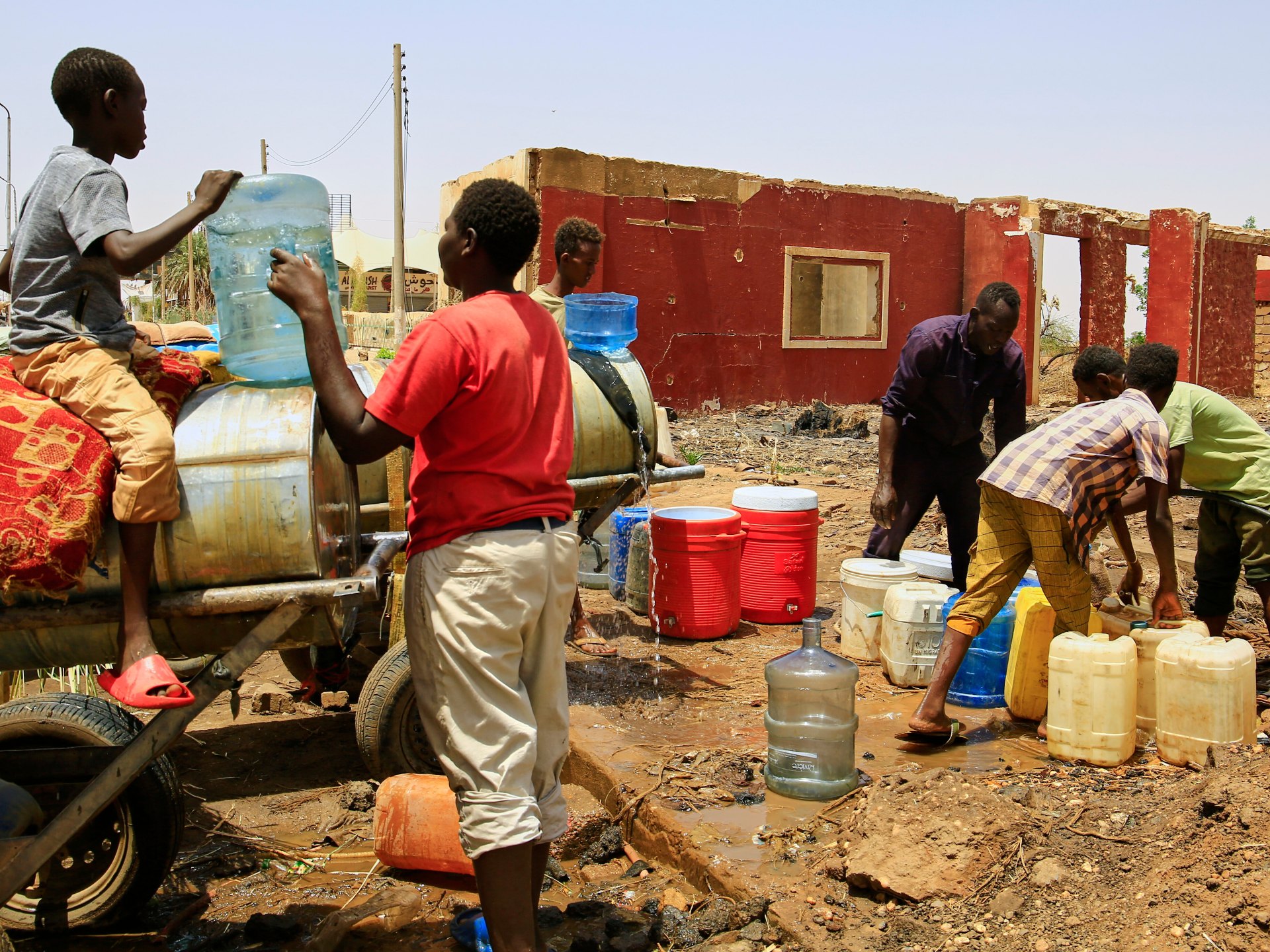The risk of famine in Sudan has extended close to the capital Khartoum, the UN’s World Food Programme (WFP) has warned as the country’s brutal civil war grinds on into its third year.
The agency has discovered “severe” levels of hunger in the town of Jabal Awliya, some 40km (25 miles) south of Khartoum, the WFP’s Sudan representative Laurent Bukera said on Tuesday.
Speaking upon his return from a visit to Khartoum state, Bukera described “widespread destruction” in the town and other areas around Khartoum, and called for urgent international action to prevent famine.
“The needs are immense,” Bukera said from Port Sudan, describing “limited access to water, healthcare and electricity”, as well as a cholera outbreak.
“Several areas in the south of the city are at high risk of famine,” he added. “The international community must act now – by stepping up funding to stop famine in the hardest-hit areas and to invest in Sudan’s recovery.”
The WFP, which says it is assisting four million people across the country, has had to reduce food rations in areas at risk of famine to 70 percent due to a major funding shortfall.
‘Meeting basic needs critical’
The government-aligned Sudanese Armed Forces (SAF) and the paramilitary Rapid Support Forces (RSF) have been locked in a battle for power since April 2023. The army took control of Khartoum in March and declared the city “completely free of rebels” in late May.
Now that WFP has access to the area and is able to make regular aid deliveries, the agency said it was doing everything it could to bring the local population back from the brink of famine.
Bukera said “the level of hunger, destitution and desperation” found in Jabal Awliya was “severe, and basically confirmed the risk of famine”.
The war has killed tens of thousands of people and created the world’s largest hunger and displacement crises. Over four million have fled the country and some 10.5 million are internally displaced, according to United Nations estimates.
Bukera said that with people expected to return to heavily damaged areas like Khartoum, the pressure on already overstretched resources would intensify.
“WFP is deeply concerned, and meeting basic needs – especially food – is critical and urgent,” he said.
Famine has already been declared in five areas across Sudan, including three displacement camps near el-Fasher in the southwest.
It has been all but confirmed in el-Fasher itself, where aid agencies say a lack of access to data has prevented an official famine declaration.
Source: Aljazeera

Leave a Reply